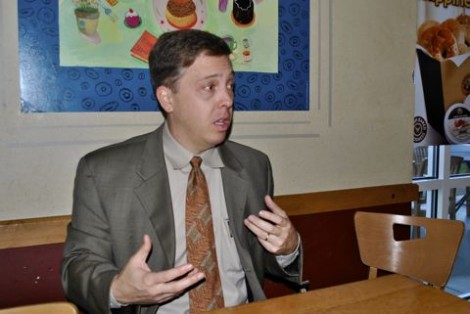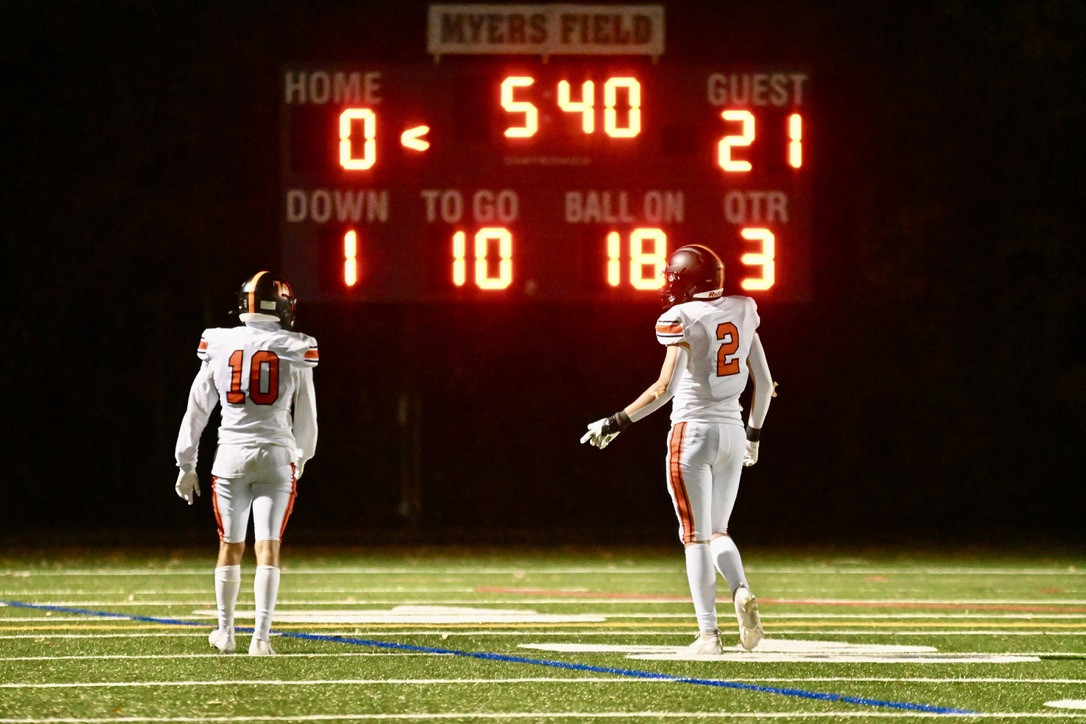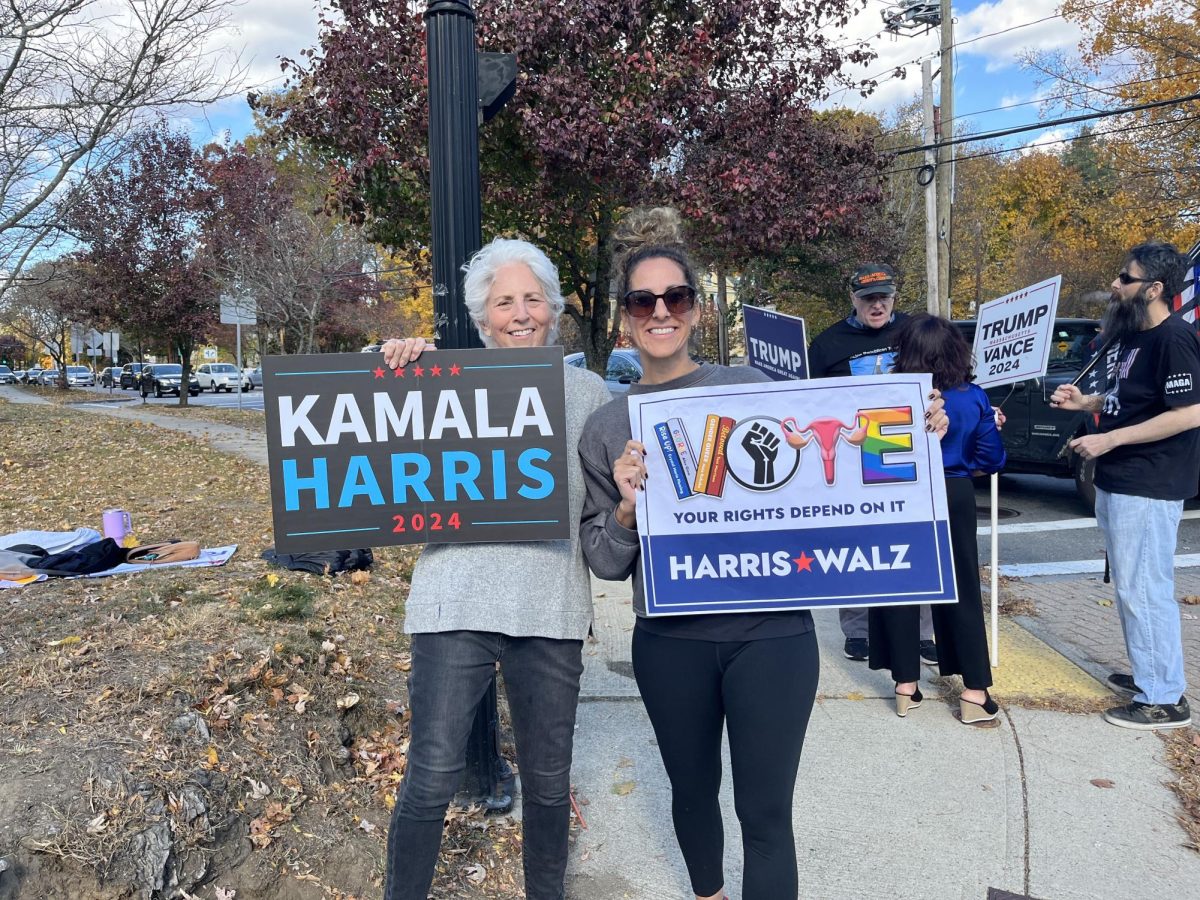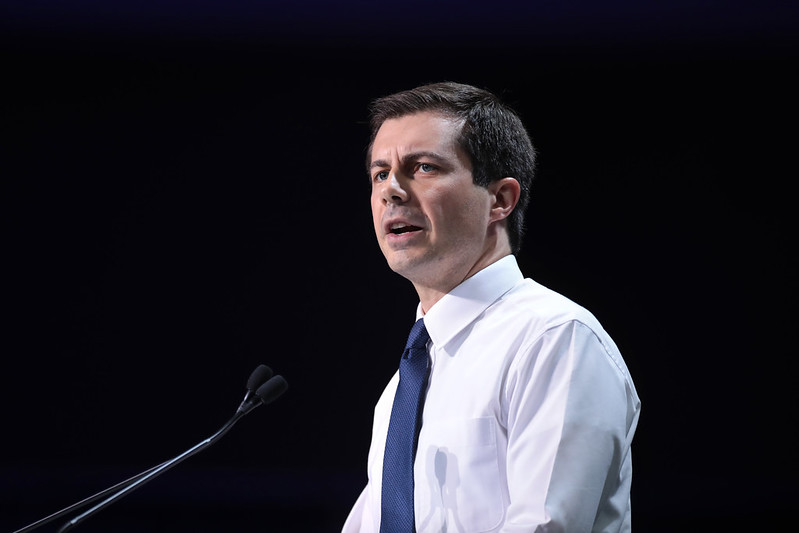
It was his freshman year of high school, and despite being the new kid – he had just skipped a grade after moving back to Wayland – James Henderson was running for class president.
He didn’t stand much of a chance.
“Let’s get real, it’s a popularity contest,” said Henderson, a 1983 Wayland High grad. “What were the issues?”
Though Henderson lost that student government election, he has put his name back on the ballot 30 years later, making an independent run for the statewide office of Secretary of the Commonwealth. He’s hoping he’ll have better luck at the polls this time, as he campaigns on how he would improve the position that he calls the “chief information officer” of the state.
On November 2, voters across the state will cast ballots in several statewide races, most notably in the contentious governor’s race. Other, less well-known offices will be filled as well, including that of the Secretary of the Commonwealth. Citizens will be asked to choose between Democratic incumbent William Galvin, Republican Bill Campbell, and independent Henderson.
The office of Secretary of the Commonwealth, occupied by William Galvin since 1994, is not one of the most visible. “It’s interesting and it’s sad that so many people in this state don’t know about the office,” says Henderson. “Interestingly enough, the office is actually third in line for leadership of the state.”
The position deals with a broad range of issues, from overseeing state elections, to regulating lobbyists and businesses, to making any state government-related data available to the general public.
Henderson is sharply critical of the way Galvin has carried out these functions and equally as condemning in his attacks on Galvin as a candidate.
“We’re in a little different era than we were in 1994 [when Galvin was elected]. We need someone in the office who recognizes that,” Henderson said, adding that the Secretary’s website was lasted revamped a decade ago.
Henderson, a lawyer with a law degree from the University of Michigan and an undergraduate degree from Princeton, also attacks Galvin for refusing to debate this election season.
“I find interesting that the person who is running the very engine of our democracy is himself refusing to participate in the most basic of campaign obligations, which is debating your opponents, letting people know where you stand,” Henderson said.
“I think it’s indicative of the way he runs that office,” he added.
More generally, Henderson says that if he were Secretary, he would aim to make the office better at sharing state data with the public and at using newer technology. “The office has stagnated, and you do not see a lot of progress,” he said.
Knowledge of new technology, he believes, is crucial to the position of Secretary of the Commonwealth. “If you’re talking about someone who’s handling information for the state and on behalf of the people of the state,” Henderson said, “that person has to have a technical background as well, to be able to truly operate that office the way it should be run in the 21st century.”
Henderson, a self-described “technology guy,” has previously worked for Apple. On his campaign website, the father of two has himself coded a tool to find one’s polling station by using free, open-source technology from Google.
If elected, Henderson plans to transform the State Database into an easy-to-use website that is readily available to the people of Massachusetts. “If government is not accessible on your cellphone, then you’re not going to be accessible to the people who are using them,” Henderson said.
Henderson believes that by making state government information more accessible, voter turnout will increase, and a greater number of people in the state will become involved with the state legislature.
Henderson has also put forth numerous ideas during his campaign to increase voter turnout. One idea is to adopt a “ranked choice” voting system – a system used in various cities in California. Under the policy, voters could rank candidates in order of preference, instead of voting for one candidate alone.
“It allows the voter to go vote for who they really want without being concerned that they’re going to elect a person they’re going to dislike and actually encourages more candidates to run for office,” he said of the idea.
A change that dramatic would require approval by the state legislature. Henderson believes that, if elected, he could help pass such a law. “If you have someone like me in the office, who would go and advocate for this, there’s a far greater chance it would happen,” he said.
According to Henderson, this can be done cheaply, often with free open-source software.
Despite the fact that the Stowe native is running without the institutional backing of one of the two major political parties, he believes it’s possible that he could win.
“I hear a very strong anti-incumbency attitude out there amongst the electorate. If there was ever a year for someone like me who could go out and provide a smart, cogent argument without flying a party banner, this is the year,” he said.



































